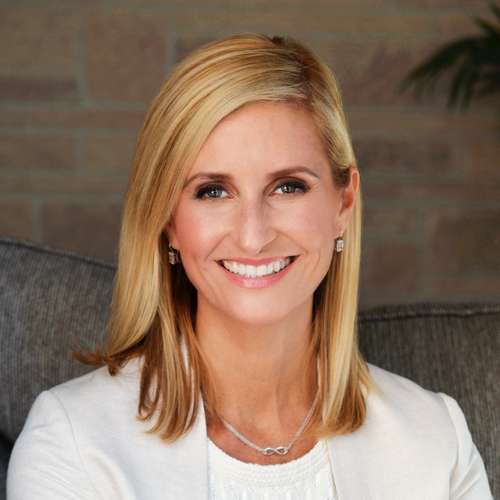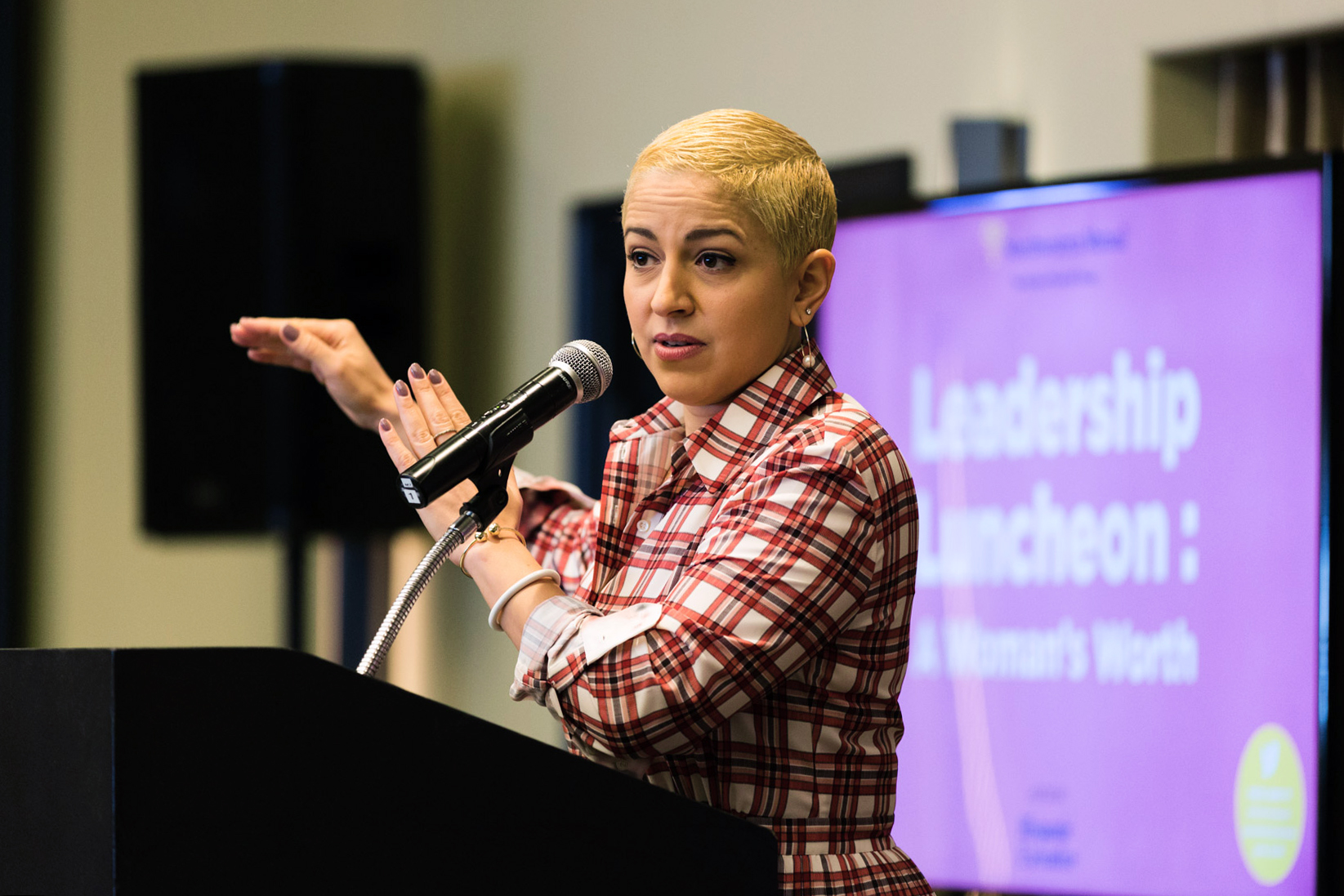|
Getting your Trinity Audio player ready...
|
Having spent his early childhood in Bayamón, Puerto Rico, Hubert Rivera of TD Bank was heartbroken when Hurricanes Irma and Maria struck the island in the fall of 2017.
“I’m one of fifty-six cousins on my mom’s side, so I still have a lot of family over there that were unfortunately affected by the hurricane,” he says. “I’m heartbroken with everything that’s still happening in some parts of Puerto Rico, especially where much of my family is in Corozal, a municipality out in the countryside. They’re still having trouble with electricity and running water. They’re still going through it, but they’re still the happy bunch they’ve always been and they’re resilient.”
Despite his assurance in his own family’s resilience, Rivera felt compelled to do something. As a senior vice president and national chair of Latinos in Leadership at TD Bank, Rivera’s team organized efforts to help hurricane victims by getting the employees at his contact center outside of Philadelphia involved. The team brought in food, clothes, toys, and more goods to donate, which the company gave through a local Philadelphia charity, Unidos PA’ PR.
“We ended up with maybe four or five carloads of materials, food, and clothing,” Rivera says. “Everyone contributed and that was our way of not only helping out, but getting employees involved in a good cause.”
It’s that type of employee engagement that Rivera focuses his energy on today. As the leader of about five hundred employees, he actively engages his team by doing everything from buying lunch for the entire office as reward for positive customer satisfaction scores to letting his employees wear sneakers and be comfortable in the office. For him the foundation of everything that he focuses on starts with the employee experience.
“It’s a really neat environment,” he says. “It’s not superficial. It’s absolutely who we are. We are like this every single day.”
In fact, TD Bank’s unique company culture is what originally attracted Rivera to the job.
As someone who came of age in a low-income area outside of Philadelphia living from the welfare system and in public housing, Rivera started his career without expecting to even earn a college degree. After high school, he decided to follow in his father’s footsteps and get his mortgage broker’s license.
“My dad has always been my hero,” he says. “Growing up, he was what I wanted to be.”
So, for about a year, Rivera drove around central Florida, where his father lived and worked, closing loans. On the road, Rivera honed some of his most valuable skills—the assets that make him such an effective leader today.
“I learned how to build relationships, how to genuinely care for people, how to build trust, and how to just look at people for their human side,” he says. “That helped me immensely.”
Following his time working with his father as a mortgage broker, Rivera applied for a job at InCharge Debt Solutions, a nonprofit credit counseling organization, where he started on the phones as a bilingual financial counselor; there he worked for nearly twelve years.
During his time at InCharge, Rivera worked his way up and held various senior leadership roles, eventually acting as head of the organization’s education foundation and working with government bodies such as the Federal Trade Commission and the Consumer Financial Protection Bureau. One the most important turns of events, however, was meeting his friend and mentor Soraia Dearaujo. Dearaujo, the head of operations for the InCharge staff, recognized that Rivera had potential, and she pushed him to pursue his education further.
“She would hound me every single day; I kid you not. She was just relentless,” Rivera says. “I mean she would also try to fire me every day. She would just tell me, ‘You’re too talented. You’ve got to finish your degree.’” The way Dearaujo empowered Rivera taught him early on the importance of also empowering his leaders and it’s something that he still believes in today.
So, Rivera went back to school to earn his bachelor’s degree at Warner University. Rivera eventually earned his MBA from the University of Maryland. By that time, one of the largest national banks in the United States had noticed his work at InCharge and began recruiting him for a job. While he was happy with his current role, one moment changed Rivera’s mind.
One Christmas morning, while visiting his mom in Virginia, Rivera came downstairs and couldn’t find his wife, Yesi, anywhere. Yesi is from Mexico and had never seen snow before. Rivera found her outside playing around in the snow.
“She comes running up and she says, ‘You need to accept the job at the bank. I want to live in a place that has snow,’’’ Rivera says. “That was the decision. I called the recruiter and said, ‘Hey, we’re all in.’”
In his new role, Rivera found increased responsibilities for less pay and a tiny office. Yet, the bank—a massive organization with more than 260,000 employees—also provided Rivera with the opportunity for growth; an opportunity to learn from some of the most experienced leaders in the industry. Within five years, he was promoted several times, worked in various strategic roles, and eventually was in charge of anything that had to do with the content strategy for non-English and specifically Spanish-language materials for the bank, whether for marketing or servicing. It was, he says, a wonderful learning experience, and he enjoyed the opportunity for growth.
That’s when TD Bank began recruiting him. Like when he was offered his previous role, Rivera was reluctant. This time, however, it was not his wife’s desire to live farther north that won him over. Instead, it was a robust corporate culture, one that Rivera says makes every employee feel valued.
From his first interview with TD Bank, Rivera saw a future at the company. He sat down with Robert Ghazal, who would become his boss at the bank, and Ghazal said, “Tell me about middle school.” At first Rivera was confused, but then it clicked.
“I was thinking, ‘Wow, this guy really wants to know who I am; he wants to know if I fit into this culture,’” Rivera says. “The hour and a half that I spent with Robert, we didn’t talk about the job at all.” Rivera would later ask his boss why there were no questions on the job, and Ghazal said that he already knew he could do the job; he just needed to know if Rivera was the right fit.
Then, again, during another interview with Ghazal’s boss John Capozzolo, they didn’t talk about the work. They instead traded stories of growing up in humble environments and working their ways up through the financial services industry. Capozzolo’s candor and empathy blew Rivera away. Capozzolo had started at the bank some thirty-five years earlier as a teller.
“I think at that moment I knew that jumping over to this organization was probably going to be one of the best career decisions that I ever made,” Rivera says.
Now, more than two years later, Rivera knows that he’s a culture fit and couldn’t praise the company culture more—and he tries to pass that spirit on to the team he leads today.
On top of doing everything from recognizing his top employees with rewards and letting his employees bring their kids to work to visit (Rivera keeps his desk stocked with goodies for the kids, such as TD Bank fidget spinners and stress balls), Rivera tries to give back organization-wide. “The focus is for our team to know that they’re valued; they know that I want to know each one of them by name,” Rivera says.
He’s the national chair of Latinos in Leadership, a member of Women in Leadership, and a mentor in informal and formal capacities. In fact, he is currently mentoring various leaders from across the organization. But for Rivera, supporting employees and passing along a positive spirit is not hard. It’s just a part of what the company does.
“At TD Bank, it’s ingrained into the fabric of who we are,” he says. “At TD, when we’re talking about diversity and inclusion, it’s about celebrating you for you. It’s about celebrating you because our differences make us better. It’s that feeling that you are not a number, and to be honest, there is nothing more important than going to a job where you feel that you’re valued and where you don’t have to be somebody else.”

